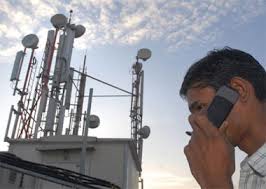  Amid conflicting studies and raging debates on the health hazards associated with radiations from telecom towers and mobile phones, WHO and a French government expert group ANSES (Agence Nationale De Securite Sanitaire - French Organization for Food, Environmental and Occupational Health & Safety) in their advisories have debunked such fears.
“Studies to date provide no indication that environmental exposure to RF (radiofrequency) fields, such as from base stations, increases the risk of cancer or any other disease. Scientists have reported other health effects of using mobile phones including changes in brain activity, reaction times, and sleep patterns. These effects are minor and have no apparent health significance”, the WHO in its advisory has said;.
A WHO advisory dated 20th Sept 2013 pointed out that with the recent popularity of mobile phone use among younger people, and therefore a potentially longer lifetime of exposure, WHO has promoted further research on this group and is currently assessing the health impact of RF fields on all studied endpoints”,.
In another related development the French government agency ANSES ,in its recommendation said yesterday that biological effects corresponding to generally reversible changes in the inner functioning of the body can thus be observed, as is also found in the case of exposure to different stimuli of everyday life.
However, the Agency’s experts were unable to establish any causal link between the biological effects described in cell models, animals or humans, and any possible resulting health effects. Given this evidence, proposing new exposure limits for the general population on health grounds does not seem justified.”
Rajan S Mathews, Director General, Cellular Operators Association of India said, “WHO as well as the French advisory clearly upholds the safety of the emission levels of the mobile phone industry. It also clearly demarcates the difference in impacts of mobile phones and base stations.”
India’s mobile industry complies and conforms to norms mandated by the Department of Telecom (DoT) which lowered by 90%, the norms mandated by international regulatory bodies such as the World Health Organisation (WHO) and the International Commission on Non-Ionising Radiation Protection (ICNIRP).
But a new detailed study by the BioInitiative Working Group 2012 found that in last five years, health risk due to radiations has increased substantially. It is an extensive report comprising review of over 1800 new scientific studies.
The report has found that mobile users, parents-to-be, young children and pregnant women are more sensitive to the risks from mobile phones.
The report also points out that a number of new studies link radiation to sperm damage. Even a mobile phone in the pocket may harm sperm DNA and result in infertility in men. Laptop computers with WiFi and mobile phone data card can also damage DNA in sperm.
It said mobile phones may also alter brain development of the fetus in the case of pregnant women. This has been linked to hyperactivity, learning and behavior problems. |